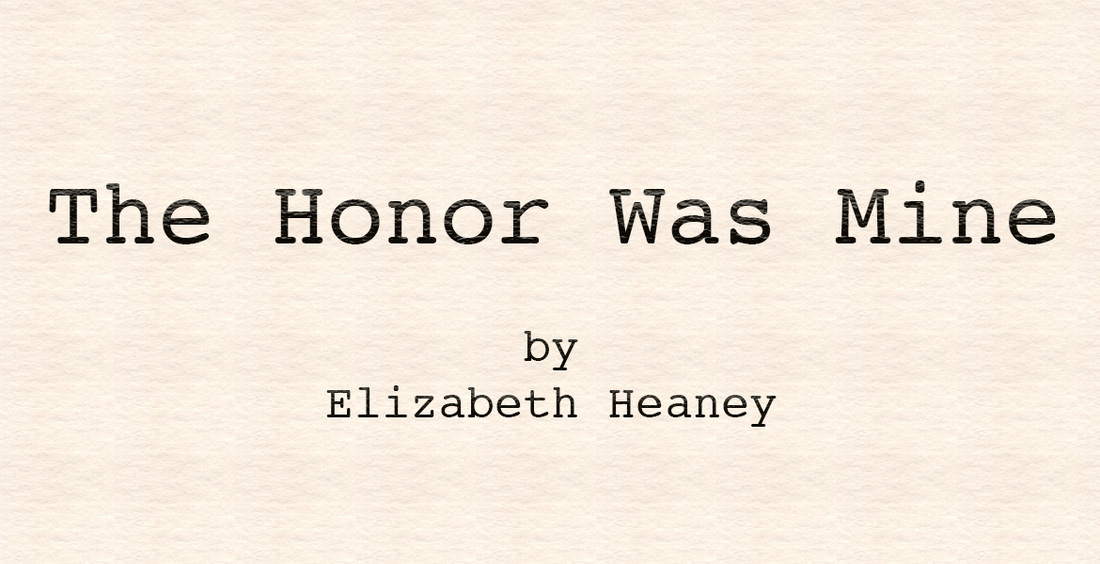
Just watched an astoundingly poignant 60 Minutes episode on Gold Star Parents, those who have lost a son or daughter to combat. It’s the kind of thing we all need to watch in order to understand the isolating loss they each carry in their hearts, the grief they face, the unique experience they walk through.
You can watch it below or here. Let me know what you think. Better yet, let me know what you felt . . . Previous Comments:Bob says:  Dear Friends, I’m so very pleased to let you know The Honor Was Mine, my book about counseling combat veterans, has just gotten a contract for publication. I truly couldn’t be happier. Wild thanks to Renee Fountain of Gandolfo Helin & Fountain Literary Management – she’s been terrific to work with; I am ever-grateful she understood the heart of the book. Release date is Sept. 2016 (go ahead . . . I’ll wait while you mark your calendar). : ) Thanks to all who’ve been supportive along the way. I hope these soldier stories are just getting started on their journey. Previous Comments:Bob says:
danny johnson says:
 In the swirl of horrors and reactions related to last week’s torture report, I came across this very fine essay written by an Army veteran who later worked as a civilian interrogator at Abu Grahib. When we think about the issues surrounding torture, we rightfully focus on those who have suffered from being tortured. Eric Fair poignantly and powerfully reminds us that those who torture might also suffer. He doesn’t hold back in confessing his culpability – he also gives us a chance to understand how his own choices and actions haunt him to this day. You can read it here. Previous Comments:Kat says:
Jenifer Morgan says: People ask me what was the most touching (or most difficult) thing about working with the military, and there’s innumerable rich or challenging moments I could list on both sides of that question. I’ll mention a few in my next posts . . . I’d just finished a briefing to a large auditorium of soldiers, telling them about the counseling services I offered on the base. I kept emphasizing that it was confidential – nothing would go in their records. My cell phone rang as I walked back across the base to my office. “I just heard you talk about your program. I never knew we could get counseling that wouldn’t go into our records.” I assured him: no notes, nothing in his files, his commanders would never know he talked to me. “I’ve been desperate. I’ve been praying for something that would help me. I think this might be it,” he said, his voice choked with emotion. “When can I come in?” “I’ll be in my office in ten minutes and . . .” I said; before I could finish my sentence, he said, “I’ll be there.” A few minutes later, the high-ranking officer dropped into the chair across from mine and put his head into his hands. When he looked up, his black hair was swirled and spiked from the way he’d pushed his hands through his hair. His face looked sadder than any face I’d seen in a long time, his eyes filled with angst and his mouth tight with tension. He began to talk about an issue he’d been struggling with for years – an issue that would interfere with his career if it became known. Recent work assignments had dramatically increased his stress levels, and he was beginning to crumble with the tension of his personal issue and the job stress. He had never spoken to anyone about his concerns, and he cried as he told me about how unbearable things had started to feel. When our time ran out on that first day, I asked if he wanted to come back the next day. He wordlessly nodded and thanked me profusely as he left my office. The next day, he again poured out all the anguish he’d been trying to manage. He came in a third time in that first week. I felt like I was watching him find some steady ground under his feet after years of treading roiling, dangerous waters of stress and secrets. A few days after his third session, he called to let me know he’d been temporarily assigned to a distant base for a project. He told me our conversations had been greatly helpful, and he would call me as soon as he returned. Weeks passed, and I didn’t hear from him. I thought of him often, and kept hoping he was still doing well. The day before I was leaving that base to move to a new assignment, he called to tell me he was back from his project and wanted to continue our exchanges. When I told him I was leaving and wouldn’t be able to talk to him, he instantly got choked up, “What am I going to do? I need to talk to you.” I assured him he could continue his work with the counselor who was replacing me. “But I don’t want to talk to someone else. You already know me. You already helped me. I don’t want to start over again.” I heard the despair creeping back into his voice. “I’m so sorry,” I said, “I have to hand you off to the new counselor.” According to my contract, I was not allowed to have contact with service members once I left a particular base. While I could see the reasoning behind this restriction (wanting soldiers to access the arriving counselor rather than trying to work long-distance with the departing one), I chafed at it. And in this instance, as the officer said good bye and hung up, I felt bad for sticking with the rules. All the reasonable logic in the world didn’t weigh an ounce when up against the anguish that man was swimming in. To this day, I wonder what happened to that officer. I wonder if he got more help. I wonder so often how he’s doing and how that issue unfolded. And I feel I made the wrong choice. I stuck with the rules; I did my job as assigned. And I regret it. Previous Comments:Sara pearson says:
|
Elizabeth Heaney - AuthorClinical Psychologist, teacher, private counselor. She speaks and writes about her work with service members. Archives
November 2020
Categories
All
|
|
All content (C) Elizabeth Heaney except where noted. All rights reserved, 2016.
Web design by GraphicMedia Design
|
 RSS Feed
RSS Feed